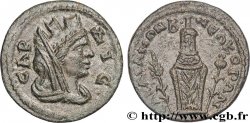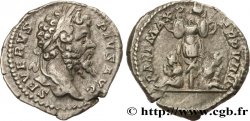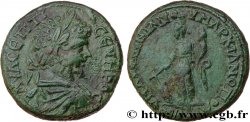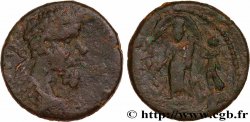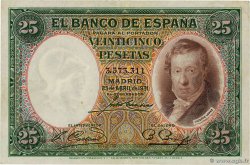bpv_649990 - SEPTIMIUS SEVERUS Tetrassaria
350.00 €(Approx. 406.00$ | 304.50£)
Quantity
Add to your cart

Type : Tetrassaria
Date: an 9
Mint name / Town : Héliopolis, Syrie, Coelé Syrie
Metal : copper
Diameter : 18 mm
Orientation dies : 12 h.
Weight : 9,53 g.
Rarity : R3
Coments on the condition:
Exemplaire sur un flan bien centré à l’usure régulière. Beau buste de Septime Sévère. Représentation inhabituelle. patine vert foncé légèrement grnauleuse
Obverse
Obverse legend : IMP L SEP SE-V PERT AV.
Obverse description : Buste laureé, drapé et cuirassé de Septime Sévère à droite, vu de trois quarts en arrière (A*2).
Obverse translation : “Imperator Lucius Septimius Severus Pertinax Augustus”, (L’empereur Lucius Septime Sévère Pertinax auguste).
Reverse
Reverse legend : // COL/ HEL.
Reverse description : Tuché tourelée drapée debout de face sur un piedestal enttre deux Génied lui tendant une torche.
Reverse translation : “Colonia Heliopolis”, (Colonie Héliopolis).
Commentary
Pour ce type, nous avons un unique exemplaire recensé, provenant du Cabinet des médailles de la BnF.
For this type, we have a single identified example, coming from the BnF medal cabinet.
For this type, we have a single identified example, coming from the BnF medal cabinet.







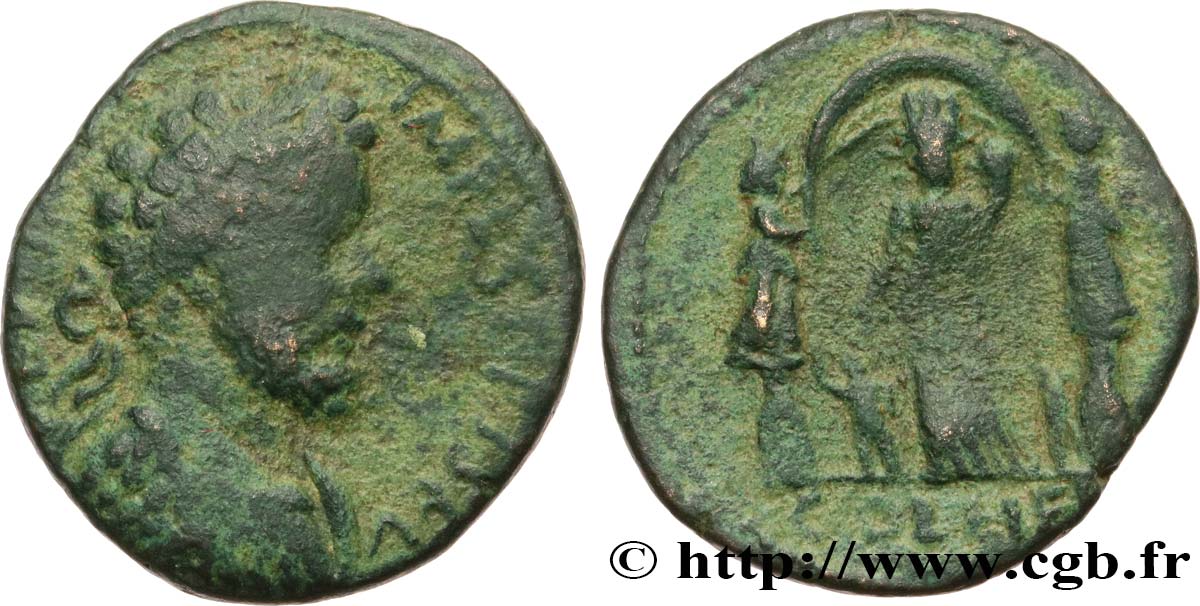
 Report a mistake
Report a mistake Print the page
Print the page Share my selection
Share my selection Ask a question
Ask a question Consign / sell
Consign / sell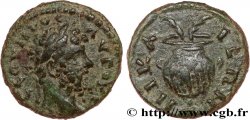
 Full data
Full data